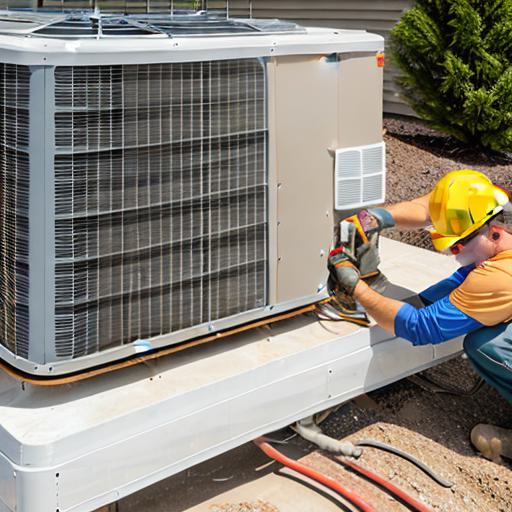Investing in a quality HVAC installation is crucial as it ensures optimal comfort, energy efficiency, and long-term performance of the system. A poorly installed HVAC system not only voids the warranty but also leads to increased utility bills, frequent repairs, and decreased indoor air quality. Before installing your HVAC system, you want to make sure you choose someone qualified, experienced, and reliable. In this article, we will be sharing essential tips on how to make sure you are getting a quality HVAC installation.
Research and select reputable HVAC contractors
Seek recommendations from your friends, family, or colleagues who might have recently had HVAC installations. They can share personal opinions about their experience with a particular HVAC installation company or professional contractor who installed their system. You can also get more information about them by reading online reviews and assessing their reputation with the Better Business Bureau or other relevant authorities in your region. You need to choose contractors who are insured, licensed, and certified by relevant industry organizations. These credentials usually demonstrate their expertise, dedication to professionalism and adherence to safety standards.

- Get multiple quotes and compare prices
Once you have narrowed down your list of potential contractors, request detailed quotes from each of them. Look out for companies that offer significantly low or high estimates. Exorbitant prices could be an attempt to exploit uninformed customers while extremely low quotes could indicate shortcuts or use of subpar materials during installation. The quotes need to indicate all the necessary aspects of the installation such as labor costs, equipment, permits, and warranties. Once you have reviewed the quotes thoroughly, you need to compare the offerings to make an informed decision about the most suitable contractor for your HVAC installation.
- Evaluate Energy Efficiency
It is essential to choose energy-efficient HVAC equipment to guarantee long-term cost savings and environmental stability. For air conditioners and heat pumps, look for systems that have a high SEER rating (Seasonal Energy Efficiency Ratio). Consider items that have high AFUE ratings (Annual Fuel Utilization Efficiency) for furnaces. Energy Star-certified products also offer an assurance of energy efficiency. An experienced HVAC contractor can explain the differences in these ratings and help you choose the right-sized equipment for your home. This helps to prevent oversizing or under-sizing which could lead to inefficiencies and premature wear.
- Check for proper sizing and load calculation
An accurate load calculation is crucial for a quality HVAC installation as it dictates the appropriate size of the equipment that is needed for effective heating or cooling. Oversized systems have a short cycle and may fail to properly dehumidify the air. Undersized units on the other hand will have a difficult time maintaining comfortable temperatures. A competent contractor should conduct a thorough load calculation based on factors such as windows, insulation, orientation, and square footage. It is important to avoid contractors who solely rely on rough estimates or rule-of-thumb sizing.
- Inquire about ductwork inspection and sealing
Your HVAC system’s efficiency depends on the condition of your ductwork. Ducts that are leaking can lead to significant energy wastage and uneven heating or cooling throughout your home. Before installing the new system, ask your HVAC contractor to inspect your ductwork for signs of leaks and ensure they are adequately sealed. When ducts are properly sealed, the conditioned air will be distributed more evenly throughout your home, resulting in improved comfort. It also improves indoor air quality since duct leaks can create entry points for pollutants and allergens inside your home.
- Check for permits, warranty, and service agreements
A reputable HVAC contractor needs to obtain all necessary permits and adhere to local building codes during installation. A quality HVAC installation also comes with robust manufacturer warranties and service agreements from the contractor. You must understand the terms of the warranties and agreements as it helps to safeguard your investment. Keep in mind that regular maintenance is vital for preserving the efficiency and longevity of your HVAC system. Therefore, it is important to inquire about any maintenance plans that the contractor offers after installing your HVAC system.
A quality HVAC installation lays the foundation for an energy-efficient and comfortable home. The best way to ensure you are getting quality installation is to research reputable contractors, compare their quotes, and ensure proper equipment, sizing, and load calculation is prioritized. It is important to ensure your HVAC system installation is compliant with the standard regulations for safety, performance, and warranty coverage.
